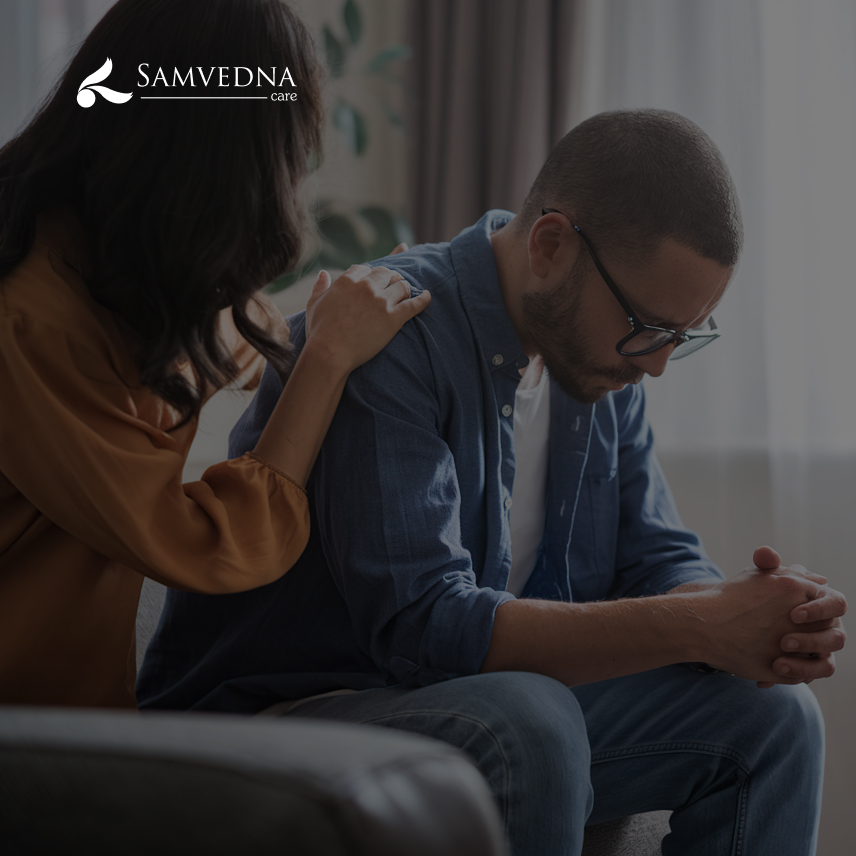Contact Us




Relationships are often seen as safe havens where we seek love, comfort, security and companionship. But for many individuals, especially those carrying emotional baggage from past experiences, love can unexpectedly trigger anxiety. This paradox is more common than we think, and it reflects the deep connection between our emotional histories and how we navigate closeness with others.
Samvedna care believes , it’s important to recognize that anxiety in relationships doesn’t mean something is “wrong” with the person or the relationship. Rather, it can signal that unresolved fears or unmet emotional needs are being activated. Working with a qualified mental health therapist can help individuals and couples explore the roots of these feelings and begin to cultivate emotional safety in their relationships.
Relationship anxiety doesn’t always look like panic attacks or intense arguments. Sometimes, it shows up in subtle ways :
These patterns can become exhausting and may create strain within the relationship, especially when one or both partners begin to feel misunderstood or overwhelmed.
To understand why love can feel unsafe, we must consider the emotional blueprints we develop early in life. Childhood experiences whether nurturing or neglectful form our internal models of what love and closeness should feel like. If we grew up in environments where love was conditional, unpredictable, or unsafe, we might carry those emotional memories into adult relationships.
For example, someone who never felt truly seen or heard as a child may become hyper-aware of emotional distance in a partner. Others may have experienced emotional invalidation and now struggle to express their needs without fear of being rejected. These experiences can get triggered even in healthy relationships, simply because closeness activates old emotional wounds. This is where working with a mental health therapist can be transformative. A therapist provides a safe space to unpack these experiences and rewire how we relate to love and vulnerability.
Emotional safety is the cornerstone of a healthy relationship. It’s not about always agreeing or never fighting; it’s about knowing that your emotions are valid, your needs matter, and that you can be yourself without fear of judgment or rejection.
Key aspects of emotional safety include :
When emotional safety is lacking, anxiety thrives. Without it, individuals may feel guarded, reactive, or disconnected even if their partner has good intentions.
Relationship counseling or individual therapy can offer profound insights into these patterns. At Samvedna Care, we work with individuals and couples to explore the emotional roots of their relationship struggles and teach tools for building emotional safety.
A therapist can help by :
Therapy isn’t just about fixing problems; it’s about fostering awareness, resilience, and emotional growth. With guidance, couples can learn how to respond to each other’s triggers with care instead of conflict.
You don’t have to overhaul your relationship overnight. Building emotional safety is about consistent, intentional actions both individually and together.
Here are a few starting points :
If love feels like a battlefield more than a refuge, you’re not alone and there is help. Anxiety in relationships is not a character flaw. It’s often a signal that something inside you is asking to be seen, heard, and healed. With compassionate support from a mental health professional and the right tools, you can learn to build relationships that feel safe, nurturing, and secure. At Samvedna Care, we believe that everyone deserves a relationship where they can show up fully and be loved just as they are.